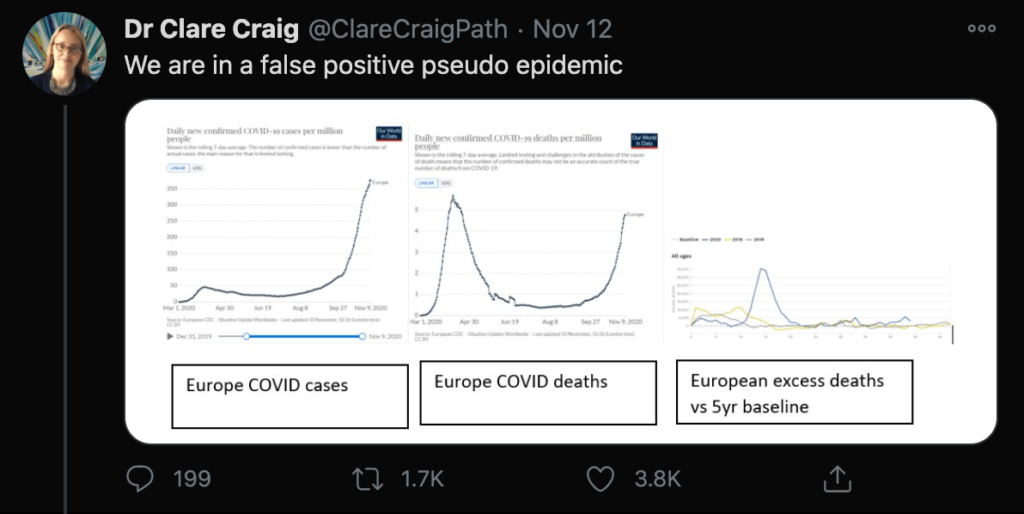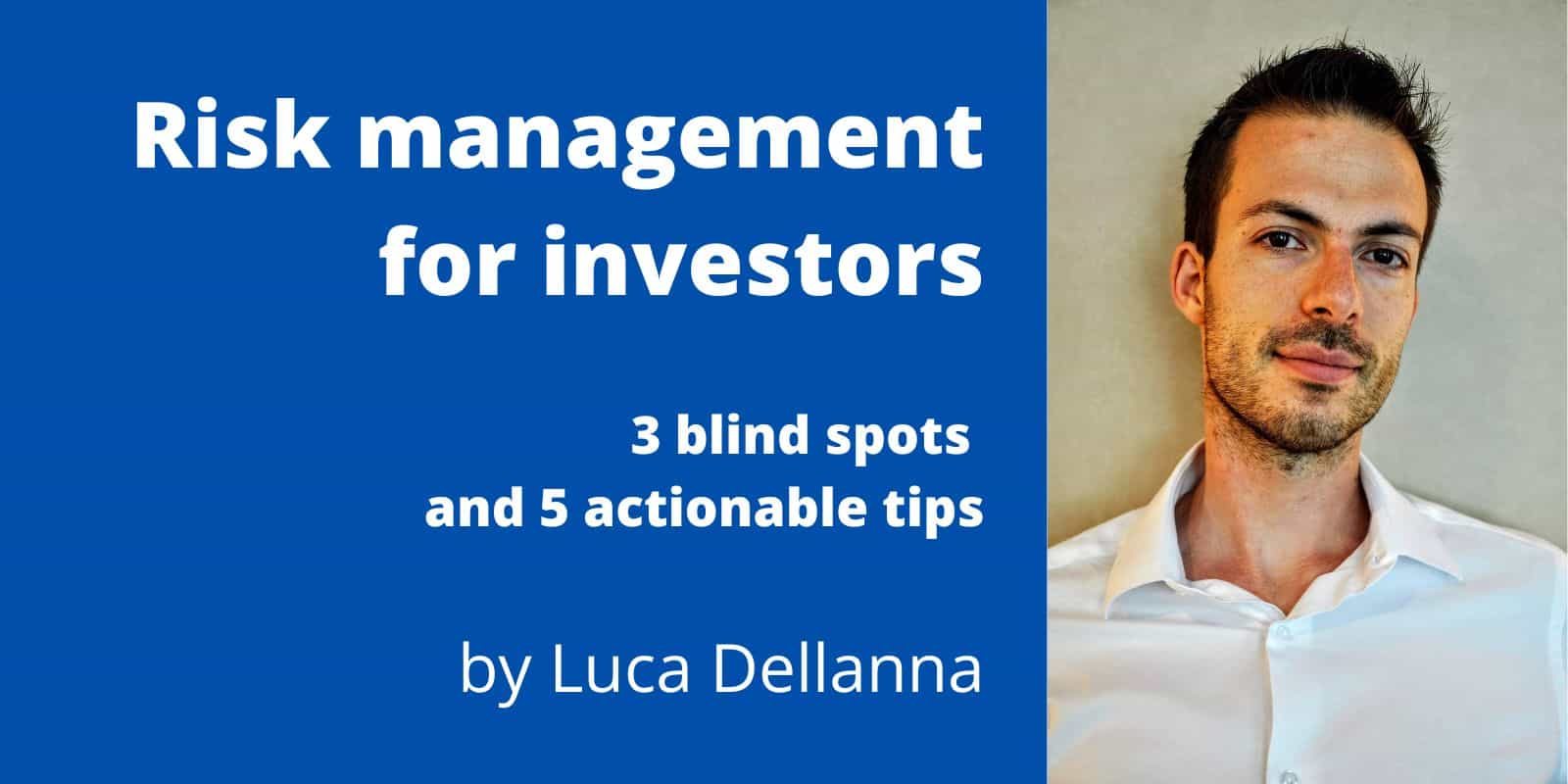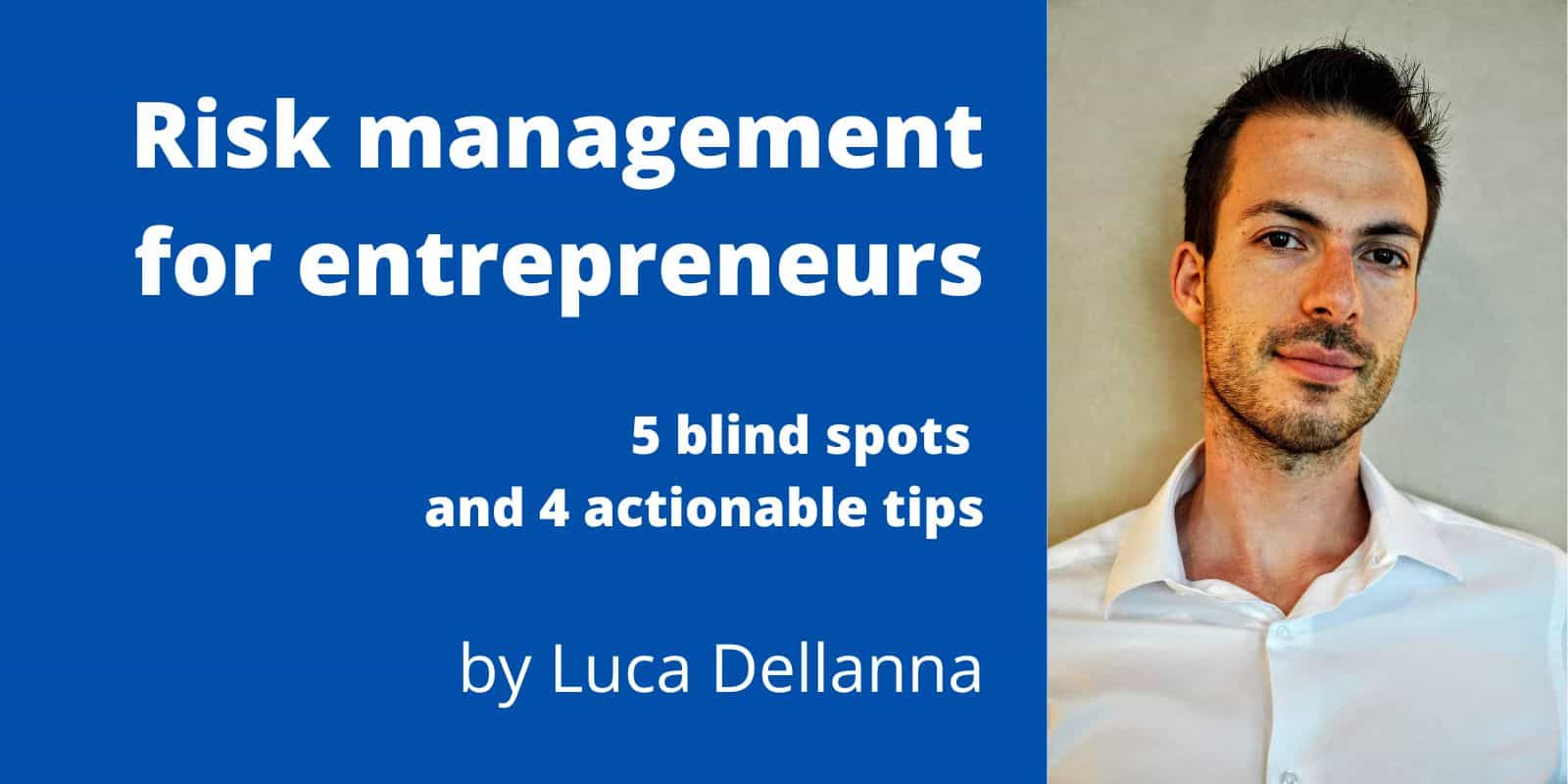The three blind spots of savvy investors when it comes to risk management and five actionable tips to address them.
You would think that we learned our lessons from last spring, and yet, I hear the same misleading claims made then.
First example: “we are in a false positive pseudo epidemic”
For example, this doctor claims that we’re being gaslighted because European excess deaths are not significantly above baseline.
The source for her claims is the European excess deaths report (Euromomo) report, whose data is considerably laggy.
For example, below is the Euromomo report for week 15 of 2020: it shows no significant spike compared to previous years, just like the doctor’s chart.
However, the following Euromomo report for week 20 significantly revises the estimates of the previous report, revealing that they were wrong. The spike in deaths was there; the data collection was too slow.
If the Euromomo report was wrong in March, why couldn’t it be wrong now?
The report uses statistical methods to compensate for missing data, but such solutions usually work in normal times and fail in unusual ones. For example, the method used by Euromomo assumes that regions whose healthcare system is overwhelmed have exactly the same reporting delay as regions where cases are low – a strong assumption, to say the least.
Second example: herd immunity
Herd immunity advocates proposed that cases were also falling this summer because we reached herd immunity in the hardest-hit areas.
This claim is at odds with the current situation in Italy, for example. Lombardy was the hardest-hit region in the first wave and is the second hardest-hit region in the second wave.
I hypothesize that herd immunity requires very high thresholds of infected people to work – for example, 70%. It can be reached in selected towns, but not at a regional level, and even less so at a national one – not before years of uncontrolled spread.
Why do we keep hearing the same mistaken claims?
Two reasons. First, those who ill-advised us in March are still in a position to ill-advise us today. Second – they learned the wrong lessons. For example, in the great face-masks debacle, the scientists that advised against the general use of face-masks in March later changed position (thankfully) but for the wrong reason. They said that new evidence emerged – but lack of evidence that face masks work has never been a good argument to call for people not to use them. That was the mistake, and they still believe that did the good thing.
Paraphrasing Paulo Coelho, chronic problems are life’s way to teach us lessons we don’t want to learn.
…
Check out my new premium newsletter!





